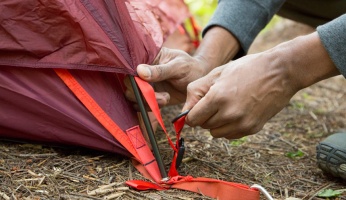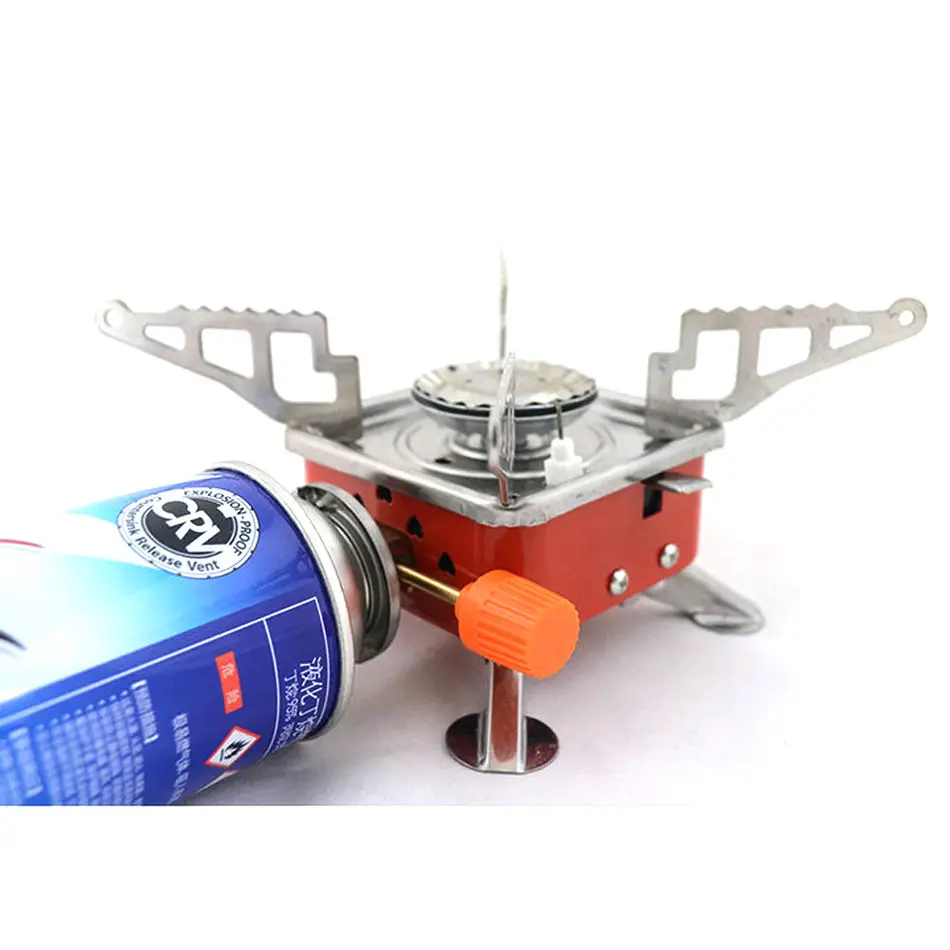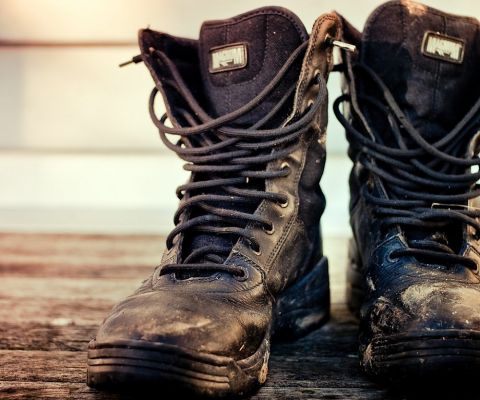Top 5 Tips For Stockpiling Gasoline
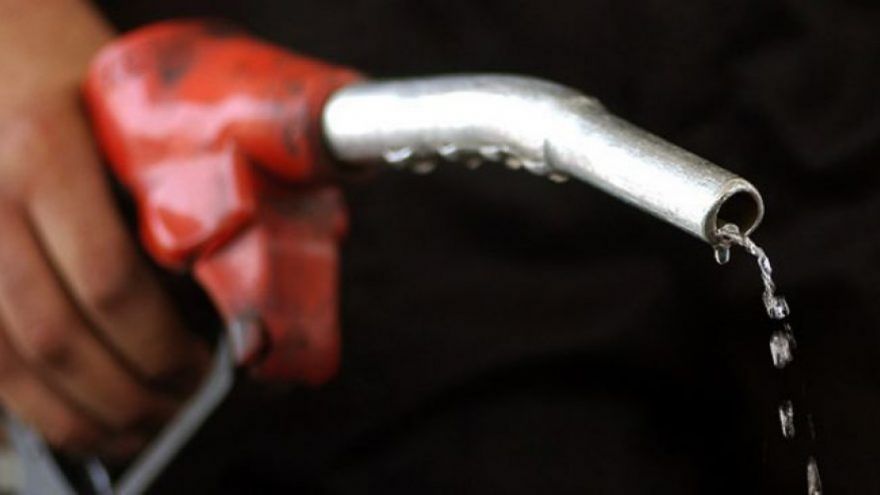 Top 5 Tips For Stockpiling Gasoline
thegearhunt.com
Top 5 Tips For Stockpiling Gasoline
thegearhunt.com
Stockpiling enough equipment and supplies for survival and disaster preparedness is undoubtedly a core element for survival. Things like food, water, ammunition, and medical supplies are examples of general items that most preppers anticipate will be valuable and necessary in a disaster scenario and therefore stockpile them.
Something else that is incredibly important to stockpile will be gasoline. Just like how guns cannot shoot without ammunition or most electronic devices can’t work without batteries, vehicles can’t run without gasoline. That’s why you can fully bet that gasoline is going to become one of the most valuable commodities on the planet following a disaster, and it’s also why you must store as much of it as you can.
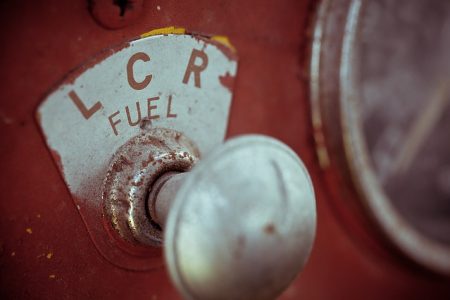
The problem is that most people don’t store very much (if any gasoline) at their home at all, and many of those who do don’t know how to do so safely and in a way to prevent the gasoline from going bad. Stockpiling gasoline is great, but if becomes contaminated what good does it do you then?
The art of stockpiling enough gasoline
In this article, we are going to cover the five most important tips for stockpiling gasoline in a way that is safe and will ensure it is in good condition when you need it most.
STORE ENOUGH OF IT
First things first, you should know how much gasoline is necessary to store, right?
So, how much gasoline should you stockpile? The truth is that you can never store enough gasoline, just as like how you can’t store enough food or water. That being said, you should be able to calculate a bare minimum amount of gasoline to store.
Remember that there are two primary uses for gasoline: to power vehicles and to power generators. Let’s talk about generators first.
Assuming that you run your generator only when it is absolutely necessary, you should be able to get by with at least fifteen gallons of gasoline per week. With this information in mind, think about how many weeks of a crisis you want to prepare for, and then multiply that number by fifteen.
So for example, if you plan on preparing yourself for a month long disaster, or four weeks, you would need to store at least sixty gallons of gasoline to power your generator.
Now let’s think about your vehicles, which includes anything from your cars to your trucks to your ATV’s to your motorcycles to your snowmobiles and so on. Again, we’re going to assume that you’re only going to be running these vehicles when it’s absolutely necessary, such as evacuating your home to a bug out location.
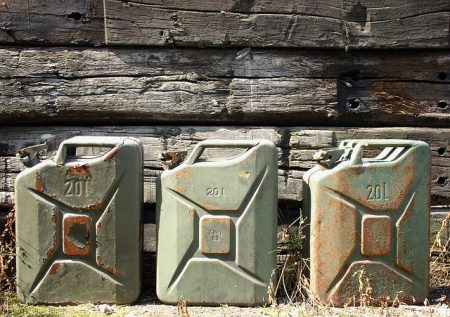
Calculate the distance from your home to the location and back, and then determine how many gallons of gasoline that would take (based on your vehicle’s specific MPG as well). Of course, you’ll need to stockpile more gasoline than just that to be on the safe side, and keep in mind that you may use your vehicles even if you’re not bugging out as well.
Regardless, simply think about what you’ll be realistically using your vehicles and then do the math to calculate how much gasoline you need. Some preppers like to store at least five hundred gallons, and while that may sound like a lot (not to mention expensive), it can be done.
ALWAYS STORE GASOLINE IN RED CONTAINERS
Colors designate which fuel belongs in what containers: kerosene is blue, diesel is yellow, and gasoline is red.
Always store your gasoline in these red containers and always buy these containers new, while thoroughly inspecting them to make sure that each one is in good shape and completely airtight.
It’s generally advisable that you would avoid purchasing used containers, because you run the risk of their being holes where the gas can leak out.
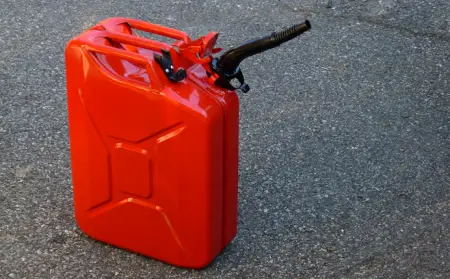
STORE YOUR GASOLINE IN THE GARAGE AND SHED
Never, under any circumstances, store your gasoline in your house. This is purely for safety purposes; not only is fuel highly flammable, but it could leak and present serious health issues as well.
You would also be wise to avoid storing gasoline outdoors, because it becomes vulnerable to the natural elements. Since gasoline is flammable, you never want to store it under the hot sun for hopefully obvious reasons. But you also don’t want your gasoline to get rained over since moisture or any other kind of debris (such as dust) for that matter could contaminate it.
This means that you have to give your gasoline some sort of shelter, which is why your garage or an outdoor shed with proper ventilation works best.
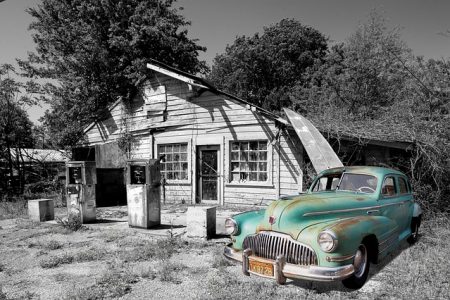
HANDLE SPILLS RESPONSIBLY
It’s important to recognize that accidents do happen, which means that you must be prepared for the possibility of a gasoline spill. If a spill does indeed happen, it’s imperative that you handle it responsibly and safely.
The first thing you need to do is to handle the spill as quickly as possible. Plain rags or sawdust works best for soaking up the gas.
If a very large and significant spill has occurred, however, you will need to contact a waste disposal company for help. Always follow your local regulations on cleaning up gasoline and dump it into approved containers; dumping it in garbage cans is something you definitely want to avoid as it could result in a fire.
ROTATE REGULARLY
Last but not least, you need to remember to rotate your gasoline regularly as well. If you think that gasoline is good to go for eternity once you store it, even in optimum conditions, you need to think again.
Generally speaking, when stored in the right conditions gasoline will have a shelf life of around a year before going bad, though you could possibly extended that shelf life with the aid of a fuel stabilizer.
This is why it is wise to mark the date you stored your gasoline on each container. When a year is coming near, use that gasoline to fuel your vehicles (there’s no sense in wasting it) and then head over to the gas station to refill up the containers.
CONCLUSION
Gasoline is something that we rely on each and every day but rarely think twice about. We need it to power vehicles so we can travel from Point A to Point B and generators so we can keep ourselves warm in our homes.
In this regard, not stocking up on gasoline would be a very foolish mistake. In a true grid down survival scenario, you’ll be very glad you spent the money and time to stockpile it safely.






